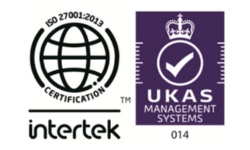What is an EMI scheme?
Enterprise Management Incentives (EMI) are share options that are a powerful tool designed to help trading companies with significant growth potential attract, and retain key employees. By offering substantial tax benefits and flexibility, EMI schemes are highly attractive to both employers and employees. EMI share options offer a range of advantages, key features of EMI schemes include:
- Eligibility for Companies: EMI schemes are available to independent quoted or unquoted companies with gross assets of £30 million or less. The company or group must have fewer than 250 full-time equivalent employees. All employees must work at least 25 hours a week or 75% of their total working time for the company.
- Share Option Limits: Each individual can be granted up to £250,000 worth of shares, with the total value of options granted under an EMI scheme capped at £3 million.
- Tax Benefits: Generally, no income tax or National Insurance Contributions (NIC) arise on the grant or exercise of market value options. Capital Gains Tax (CGT) at 20% is payable on the sale of shares unless the option has been held for 24 months, in which case Business Asset Disposal Relief can reduce the tax rate to 10% on the first £1 million of gain.
- Advance Assurance and Valuation: Companies can obtain advance assurance from HMRC that they qualify for EMI. The market value of shares can be agreed upon in advance, providing clarity and certainty for both employers and employees.
- Corporation Tax Deduction: Provided conditions are met, a corporation tax deduction should be available to the employing company in the period in which the employee realises a gain.
As a leading provider of payroll, HR, and time management software, PayEscape is well-equipped to assist businesses in navigating the complexities of EMI schemes, ensuring compliance and maximising benefits. Get in touch online or continue reading to find out how EMI Schemes can benefit your business.
How do businesses qualify for an EMI Scheme?
To qualify for EMI, businesses must meet the following specific criterias:
- Gross Assets and Control: The company or group must have gross assets of £30 million or less. In the case of a group, the gross assets test is applied to the entire group, excluding intra-group transactions. EMI options must be granted over shares in the parent company if the company is part of a group. The company granting EMI options must not be under the control of another company.
- Qualifying Trade: The company must carry on a qualifying trade. Certain trades, such as leasing, farming, financial activities, and property development, do not qualify. In a group, at least one of the trading subsidiaries must carry on a qualifying trade.
Qualifying Options
EMI options must meet specific criteria to qualify for favourable tax treatment:
- Type of Shares: Options must be granted over ordinary shares that are fully paid and not redeemable, although they can be subject to restrictions.
- Value/Price: The value of EMI options granted to an individual cannot exceed £250,000. Options can be granted at a discount or nil price, though this can have adverse tax consequences.
- Exercise Period: Options must be capable of being exercised within ten years.
Eligible Employees
To qualify for EMI options, employees must meet certain criteria:
- Working Hours: Employees must work at least 25 hours a week or, if less, spend at least 75% of their working time working for the company.
- Material Interest: Employees who have a material interest of more than 30% of the share capital before options are granted are excluded from participation.
Employee Taxation
The tax benefits of EMI options are significant:
- No Income Tax or NIC: No income tax or NIC is due at the date of grant or exercise, provided the exercise price is no lower than the market value.
- Discounted Options: If options are granted at a discount, income tax and NIC are payable on the amount of the original discount or the gain on exercise, whichever is lower.
- Capital Gains Tax: On disposal of shares, the increase in value from the market value at the date of grant is usually subject to CGT at the Business Asset Disposal Relief rate of 10% on the first 1 million of capital gain. If the sale takes place within 24 months from the date of grant, or if the 1 million lifetime limit for Business Asset Disposal Relief has been utilised, the standard CGT rate of 10% or 20% will apply, depending on whether the individual is a standard or higher rate taxpayer.
Potential Pitfalls
While EMI schemes offer generous tax and NIC reliefs, there are potential pitfalls to be aware of:
- Disqualifying Events: Several events can disqualify the favourable tax treatment of EMI options, including the company coming under the control of another company, the company ceasing to meet the trading activities test, or the employee ceasing to be an eligible employee. Additionally, significant variations in the terms of the option or a non-commercial alteration to the share capital that increases the value of shares under option can trigger disqualification.
- Timing of Exercise: If an option is exercised within 90 days of a disqualifying event, full income tax and NIC benefits are maintained. If exercised more than 90 days after the event, relief is only given up to the date of the disqualifying event.
- Variation of Options: HMRC has clarified that using discretionary powers to amend EMI options can sometimes be seen as the grant of a new option, potentially losing beneficial tax treatment on historic gains. The board’s discretion to determine the circumstances or timing under which an EMI option may be exercised must not create new rights or significantly alter existing ones.
HMRC Guidance
HMRC has provided guidance on the use of discretionary powers to vary EMI options:
- Acceleration of Vesting: Accelerating vesting or varying performance conditions is generally acceptable, provided the exercise date is not brought forward.
- Board Discretion: The board’s discretion to determine exercise circumstances or timing must not create new rights or significantly alter existing ones, as this can trigger a lapse and regrant, affecting tax treatment.
HMRC’s approach highlights the distinction between changes that increase the number of shares that can be acquired on exercise without altering the exercise date and changes that allow earlier exercise or create new rights of exercise, which can negatively impact EMI tax treatment.
Administration of EMI Schemes
Effective administration is crucial for the success of EMI schemes:
- Reporting: EMI options must be reported electronically within 92 days of grant. For options granted from 6 April 2024, this deadline will be 92 days from the end of the tax year of grant.
- Market Value Agreement: For unlisted companies, it is advisable to agree on the market value of shares in advance with HMRC Shares Valuation.
How PayEscape Can Help
To conclude, EMI schemes offer substantial benefits for both employers and employees, but they require careful administration and compliance with HMRC rules. PayEscape’s software solutions and expert support can help you navigate the complexities of EMI schemes, ensuring you maximise the advantages while maintaining compliance. By choosing PayEscape, you ensure that your EMI scheme administration is handled with the utmost care and expertise, allowing you to focus on what you do best—growing your business. Contact us today to learn more about how we can support your business in leveraging the benefits of EMI schemes.














